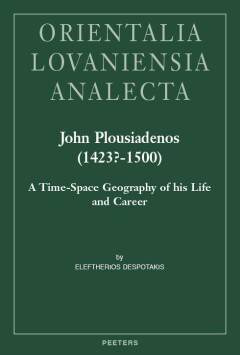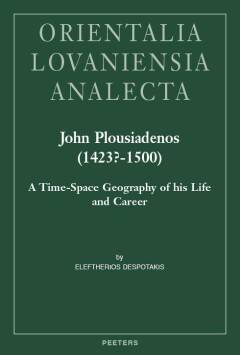
- Afhalen na 1 uur in een winkel met voorraad
- Gratis thuislevering in België vanaf € 30
- Ruim aanbod met 7 miljoen producten
- Afhalen na 1 uur in een winkel met voorraad
- Gratis thuislevering in België vanaf € 30
- Ruim aanbod met 7 miljoen producten
Zoeken
€ 90,00
+ 180 punten
Omschrijving
From the 15th century, and especially after the Union of the Churches in 1439 and the fall of Constantinople in 1453, the island of Crete was considered both by the pope and by Cardinal Bessarion as the ideal place for the spread of the new philo-Catholic reality. This is also the period during which Crete provided the West with scholars, scribes and texts, giving to the Greek-knowledge aspect of the Italian humanism a substantial boost. Through an interdisciplinary approach involving archival documents in Latin and manuscript evidences in Greek, this study aims to portray the Uniate Cretan scribe and theologian John Plousiadenos (1423?-1500) and to explore the political, religious and intellectual context within which he lived and acted. The appendix of this book includes, among other materials, the editio princeps of two Greek texts (the Prayer to the Holy Spirit and the Pattern for the Catholic confession) composed by John Plousiadenos.
Specificaties
Betrokkenen
- Auteur(s):
- Uitgeverij:
Inhoud
- Aantal bladzijden:
- 240
- Taal:
- Engels
- Reeks:
- Reeksnummer:
- nr. 284
Eigenschappen
- Productcode (EAN):
- 9789042937871
- Verschijningsdatum:
- 16/04/2020
- Uitvoering:
- Hardcover
- Formaat:
- Genaaid
- Afmetingen:
- 178 mm x 257 mm
- Gewicht:
- 793 g

Alleen bij Standaard Boekhandel
+ 180 punten op je klantenkaart van Standaard Boekhandel
Beoordelingen
We publiceren alleen reviews die voldoen aan de voorwaarden voor reviews. Bekijk onze voorwaarden voor reviews.











